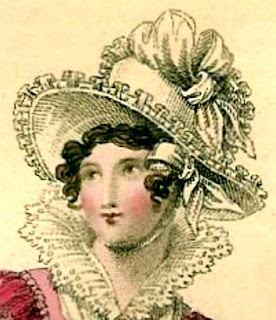“After some e-mail hunting, I received a response from the literary agent who handles Ms. Heyer’s work in the U.K. According to his letter, his agency has been trying to interest production companies in dramatizations of Heyer’s mysteries for a long time, with no success. He said production companies “mumble about the cost of period drama, and whether there is an audience for old-fashioned crime”! Thankfully, he assured me that they plan to persevere until someone sees the light….”
If you get a group of Heyer fans together then talk with inevitably turn to television and film adaptations or, more precisely, the lack of them. There is a film version of The Reluctant Widow, which came out in Heyer’s lifetime but apparently it appalled her so much that she refused to allow any more.
However, it now transpires that she badly wanted her books made into films and there’s even recently been a Cranford style version planned with three of her books given an intertwined storyline – I’m guessing it would be Regency Buck, Devil’s Cub and An Infamous Army maybe as they are already linked by common characters.





